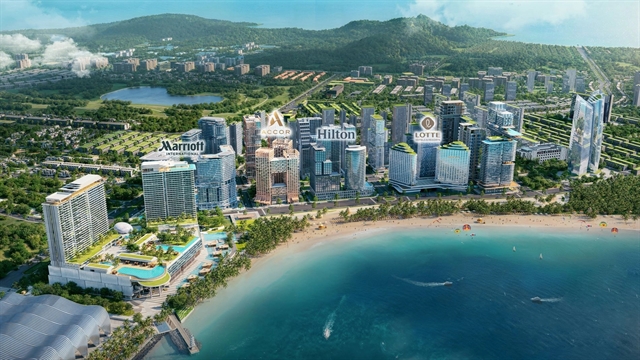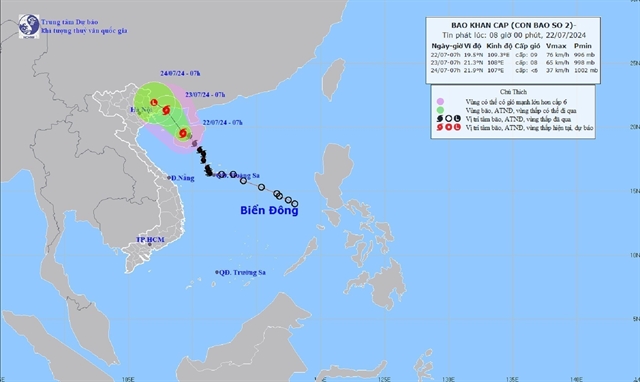 Society
Society
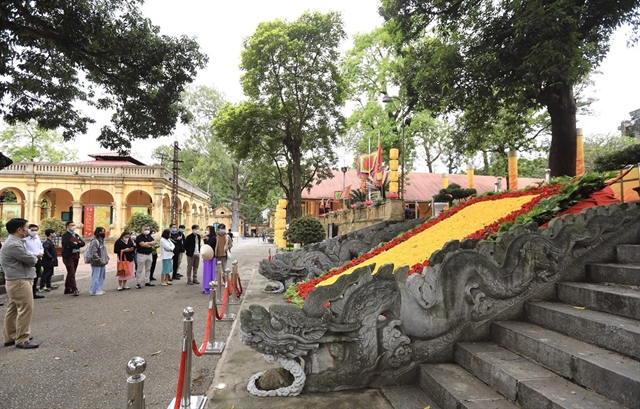
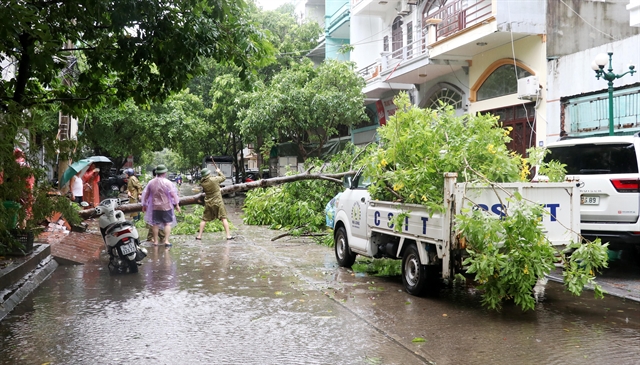 |
| Authorities tackle the aftermath of typhoon Prapiroon in Hạ Long City, Quảng Ninh Province. — VNA/VNS Photo Văn Đức |
HÀ NỘI — The suspension of passenger transport vessels, ferries and cable cars due to the impact of typhoon Prapiroon has left nearly 3,900 tourists stranded on Cát Bà Island, including 430 international visitors in Cát Hải District, the northern city of Hải Phòng.
Bùi Tuấn Mạnh, chairman of the People's Committee of the district, said following the directives of the city, transportation methods from Cát Bà Island to the mainland such as high-speed boats, Đồng Bài – Cái Viềng ferry, and Cát Hải – Phù Long cable car had ceased.
Local authorities mobilised local hotels and accommodation facilities to support tourists during their stay to avoid the typhoon.
"All hotels are being urged to reduce service prices by 50 per cent to serve the tourists while they wait out the storm," he said.
The reduction was a united effort from the Cát Bà tourism community, aiming to provide the best support to the tourists.
The People's Committee of Phù Long Commune in the district facilitated and supported 29 passengers stranded at Cái Viềng area, who were unable to return to the mainland due to ferry restrictions, by providing free accommodation and meals.
Minor damage
Due to the influence of the typhoon, heavy rains from Monday to Tuesday caused localised flooding in some areas of Hải Phòng City.
Cát Hải District recorded rainfall between 150-200mm, causing flooding in some low-lying areas.
In urban areas of the city, continuous but moderate rainfall did not cause significant flooding, even in previously flood-prone low-lying areas.
However, strong winds toppled large trees along Trần Quang Khải Street, Hồng Bàng District and uprooted newly-planted trees in Tố Hữu Flower Garden.
In Quảng Ninh Province, Đỗ Văn Tuấn, deputy chairman of the People's Committee of Móng Cái City, reported that the typhoon passed without causing major damage to the locality.
In Hạ Long City, there were three landslides and flooding in three underpasses.
The most visible damage after the typhoon was the falling of numerous trees, dismantling of metal fences at construction sites and tilting and breaking of many traffic signs.
Heavy rainfall is still expected after the typhoon and the city has directed districts, wards and forces to closely monitor flood situations, review vulnerable areas prone to flooding and landslides and to be ready to handle any emerging situations.
Nguyễn Xuân Ký, Secretary of the provincial Party Committee and Chairman of the provincial People's Council inspected the risk of landslides in the residential area No 7A in Hạ Long City's Hồng Hải Ward.
Currently, there were 17 households living in the area, including five permanent households. In response to the developments of the typhoon, the People's Committee of the ward was told to relocate the households to safer areas.
Minister’s direction
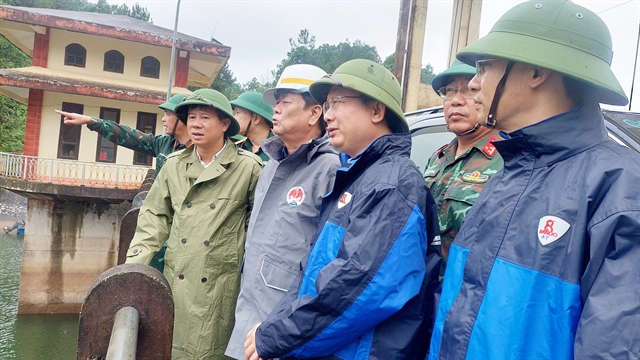 |
| Lê Minh Hoan, Minister of Agriculture and Rural Development (third, right) checks a freshwater reservoir in Tràng Vinh Commune, in Quảng Ninh Province's Móng Cái City on Tuesday morning. — VNA/VNS Photo Thanh Vân |
Lê Minh Hoan, Minister of Agriculture and Rural Development and Deputy Head of the Permanent Steering Committee for Natural Disaster Prevention and Control, inspected the storm response efforts in Móng Cái City on Tuesday morning.
Hoan said that the Prime Minister and Deputy Prime Ministers were deeply concerned about the weather situation, especially in the vulnerable areas of Quảng Ninh and Hải Phòng.
“Although the typhoon has passed without significant damage, the post-storm flood control efforts are crucial, especially in hill and mountainous areas susceptible to landslides due to successive heavy rains,” he added.
Localities must continue to closely monitor weather conditions, post-storm floods and disseminate information to prevent residents from crossing flooded underpasses or entering high-risk landslide areas.
“The goal is to prevent casualties and minimise property damage for residents and organisations,” he said.
Typhoon weakening
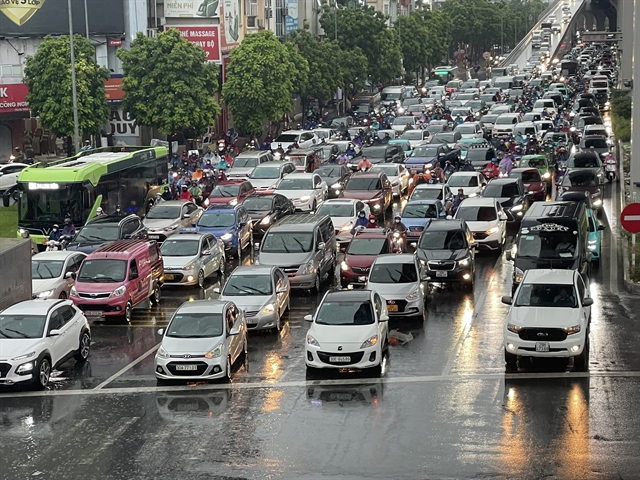 |
| Heavy rain causes congestion along a road in Hà Nội on Tuesday morning.—VNA/VNS Photo Minh Quyết |
The National Centre for Hydro-Meteorological Forecasting said that the typhoon weakened to a tropical low-pressure system on Tuesday morning.
However the low-pressure system was still causing heavy rain in the northern region and Thanh Hóa Province with widespread rainfall ranging from 70-150mm, locally exceeding 300mm until Wednesday.
Between 7pm on Monday night and 8am on Tuesday, some areas received more than 100mm of rainfall, including Quảng Yên District (Quảng Ninh) with 167.2mm and Cát Hải District (Hải Phòng City) with 291mm.
The typhoon also brought torrential rains to Hà Nội on Monday night and the whole Tuesday. — VNS

